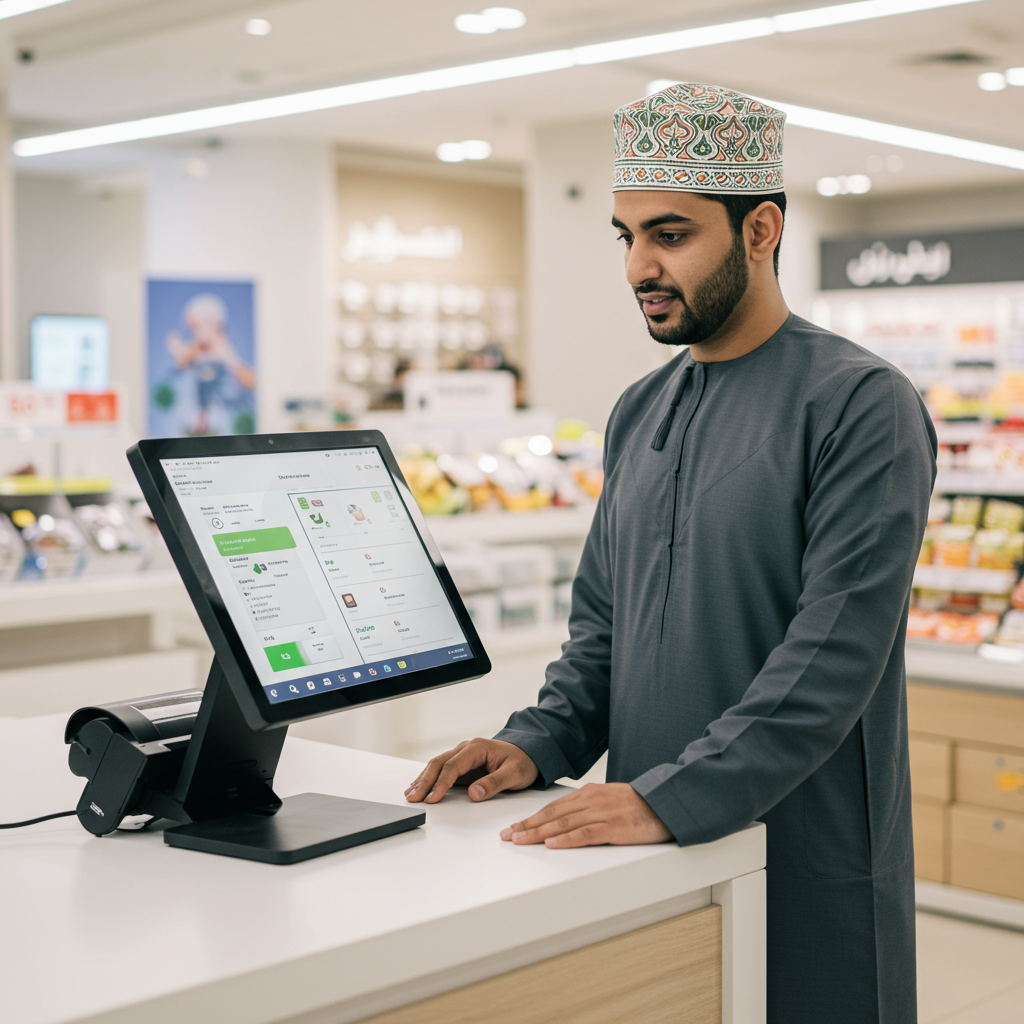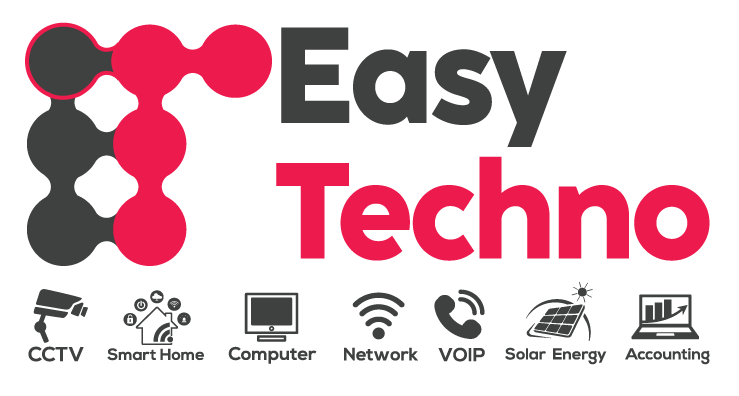Selecting the Ideal POS System for Retailers in Oman

Choosing the right Point of Sale (POS) system is one of the most critical decisions a retailer in Oman can make. In today’s dynamic retail environment, a robust POS system is far more than just a cash register; it is the central nervous system of a retail operation, influencing everything from sales transactions and inventory management to customer relationships and business intelligence. With the retail sector in Oman experiencing growth and increased competition, leveraging technology to enhance efficiency, improve customer experience, and gain valuable insights is no longer a luxury but a necessity. However, the vast array of POS systems available can make the selection process daunting. Retailers must carefully evaluate their specific needs, understand the features offered, and consider the unique aspects of operating in the Omani market to select the ideal system that will support their growth and success.
The Importance of a Modern POS System for Omani Retailers
In the competitive Omani retail landscape, operational efficiency and customer satisfaction are paramount. A modern POS system provides the tools needed to achieve both. At its core, a POS system facilitates sales transactions quickly and accurately. Beyond this basic function, it offers sophisticated capabilities such as real-time inventory tracking, detailed sales reporting, customer relationship management (CRM), and integration with other business systems like accounting software and e-commerce platforms. For retailers in Oman, this means better control over stock levels, preventing stockouts or overstocking, identifying best-selling products, understanding customer purchasing habits, and streamlining administrative tasks. This leads to improved profitability, reduced waste, and the ability to make data-driven business decisions.
Furthermore, with the introduction of Value Added Tax (VAT) in Oman, a compliant POS system is essential for accurate tax calculation and reporting. A reliable system ensures that VAT is applied correctly to taxable goods and services at the point of sale and that records are maintained in accordance with Omani tax regulations, simplifying compliance and reducing the risk of errors or penalties. The ability to handle various payment methods, including cards, mobile payments, and potentially multi-currency transactions for tourists, is also crucial for a seamless customer experience.
Key Features to Look for in an Omani Retail POS System
When evaluating POS systems, Omani retailers should prioritize features that address their specific operational needs and the local market characteristics. Some essential features include:
- Sales Processing: Fast and accurate transaction processing, ability to handle various payment methods (cash, card, mobile), discounts, returns, exchanges, and gift cards. Support for VAT calculation is non-negotiable.
- Inventory Management: Real-time tracking of stock levels, automated low-stock alerts, ability to manage product variations (size, color), barcode scanning, purchase order management, and inventory reporting. This is vital for minimizing losses due to theft or obsolescence and ensuring popular items are always available.
- Customer Management (CRM): Capture customer data, track purchase history, manage loyalty programs, and facilitate targeted marketing efforts. Building customer relationships is key to repeat business.
- Reporting and Analytics: Comprehensive reports on sales performance (by product, category, employee, time period), inventory turnover, customer trends, and financial summaries. Actionable insights derived from data are invaluable for strategic planning.
- Employee Management: Track employee sales performance, manage shifts, and assign user roles and permissions to enhance security and accountability.
- Integrations: Seamless integration with accounting software (like QuickBooks, Xero), e-commerce platforms (if selling online), payment gateways, and potentially other business systems. This creates a unified operational view.
- Scalability: The system should be able to grow with the business, accommodating additional terminals, locations, and increasing transaction volumes without requiring a complete system overhaul.
- Ease of Use: An intuitive interface reduces training time for staff and minimizes errors during transactions.
- Local Support: Access to timely and knowledgeable local support is critical for troubleshooting issues quickly and minimizing downtime. Providers with a strong presence in Oman understand the local business environment and regulations.
Types of POS Systems: Cloud vs. On-Premise
Retailers typically choose between cloud-based and on-premise POS systems. Each has its own advantages and disadvantages.
Cloud-Based POS: These systems operate via the internet, with data stored on remote servers. Access is typically through a web browser or dedicated app on various devices (tablets, smartphones, computers).
Pros: Lower upfront cost (subscription model), accessibility from anywhere, automatic updates and backups, scalability, often easier setup.
Cons: Relies on a stable internet connection, potential data security concerns (though reputable providers have robust security measures).
On-Premise POS: These systems are installed and run on local servers and computers within the store.
Pros: Data is stored locally (may offer a sense of control/security), does not strictly require an internet connection for core functions (though internet is often needed for payments/updates), customizable.
Cons: Higher upfront cost (hardware and software licenses), requires in-house IT expertise for maintenance and updates, data backups are the retailer’s responsibility, less accessibility from outside the store.
For many small to medium-sized retailers in Oman, the flexibility, lower initial investment, and ease of updates offered by cloud-based POS systems make them an attractive option, provided reliable internet access is available. However, businesses with unique security requirements or located in areas with unstable internet might prefer an on-premise solution.
The Selection Process: A Step-by-Step Guide
Selecting the right POS system requires a structured approach:
1. Assess Your Specific Needs: What are your store size, transaction volume, product complexity (e.g., variations, serialized items), and future growth plans? Do you need features like appointment scheduling, multi-location management, or e-commerce integration? Documenting your requirements is the first crucial step.
2. Research Available Options: Look for POS providers that cater to the retail sector and have experience in Oman. Read reviews, ask for recommendations from other retailers, and explore systems known for reliability and good support. Companies like easytechno offer a range of business management solutions, including POS systems tailored for the local market, which is a good starting point for research.
3. Consider Your Budget: POS system costs include software (one-time purchase or subscription), hardware (terminals, scanners, printers), installation, training, and ongoing support fees. Determine your budget range for both initial investment and recurring costs.
4. Evaluate Features Against Needs: Compare the features offered by potential systems against your documented requirements. Prioritize essential features and assess the value of advanced capabilities.
5. Request Demos: Seeing the system in action is invaluable. Schedule demos and get hands-on experience with the user interface. Involve staff who will be using the system daily to get their feedback.
6. Inquire About Support and Training: Understand what kind of support is offered (phone, email, chat), their availability (24/7?), response times, and whether local support is available in Oman. Ask about training resources for your staff.
7. Check for Compliance and Security: Ensure the system is compliant with Omani tax regulations (VAT) and payment card industry (PCI) security standards if processing card payments. Inquire about data backup and security measures.
8. Read Contracts Carefully: Before committing, thoroughly review the terms of service, contract duration, cancellation policies, and details regarding support and updates.
Specific Considerations for the Omani Market
Beyond standard POS features, retailers in Oman should specifically consider:
- VAT Compliance: As mentioned, the system must accurately calculate, track, and report VAT according to Omani Public Authority for Tax Affairs (PATA) requirements.
- Language Support: While English is widely used in business, Arabic language support in the interface or on customer-facing displays can be beneficial for staff and customers.
- Local Payment Gateways: Compatibility with local banks and payment processing providers ensures smooth transaction flows.
- Local Expertise and Support: A provider with local presence understands the unique challenges and regulations of operating in Oman. They can offer faster on-site support and training and are more likely to be up-to-date with local compliance requirements. Selecting a provider with a strong local team offering retail technology solutions can provide peace of mind.
- Infrastructure: Consider the reliability of internet connectivity in your location(s) if opting for a cloud-based system. Ensure hardware is suitable for the local climate and operating conditions.
Conclusion
Selecting the ideal POS system is a strategic investment for any retailer in Oman. It requires a thorough understanding of your business needs, careful evaluation of available options, and consideration of the specific requirements of the Omani market, such as VAT compliance and the importance of local support. By choosing a system that is not only efficient and feature-rich but also scalable, user-friendly, and supported by a reliable local partner, retailers can streamline operations, enhance the customer experience, gain valuable business insights, and position themselves for sustained growth and success in Oman’s competitive retail landscape. Taking the time to make an informed decision now will pay significant dividends in the future, transforming the POS system from a simple transaction tool into a powerful engine driving your retail business forward.
